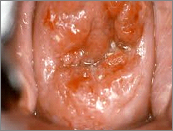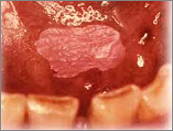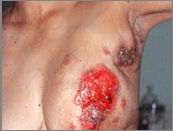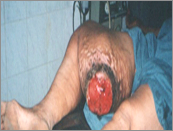- Sanjeevani
- Friends for Cancer Care (FORCE) – A forum of cured cancer patients
- Kannur District Cancer Control Programme (KDCCP)
- Early Cancer Detection Centre (ECDC)
- Pain and Palliative Care Unit
- Bi monthly follow up Clinic for cancer patients continuing treatment
- UNFPA-IPD Malabar Cancer Control Programme
- WHO/IARC Cervical Cancer Control Programme
- Telemedicine Unit
- Mobile Cervical Pre-cancer and treatment Unit
- School of Colposcopy and training centre of WHO/IARC
- Anti - Tobacco Activities
Our Programmes
Read moreOur Associates
About Cancer
Cancer (medical term: Malignant Neoplasm) is a class of diseases in which a group of cells display uncontrolled growth (division beyond the normal limits), invasion (intrusion on and destruction of adjacent tissues), and sometimes metastasis (spread to other locations in the body via lymph or blood). These three malignant properties of cancers differentiate them from benign tumors, which are self-limited, and do not invade or metastasis. Most cancers form a tumor but some, like Leukemia, do not. The branch of medicine concerned with the study, diagnosis, treatment, and prevention of cancer is Oncology. Cancer may affect people at all ages, even foetus , but the risk for most varieties increases with age. Cancer causes about 13% of all human deaths. According to the American Cancer Society, 7.6 million people died from cancer in the world during 2007. Cancers can affect all animals.
Nearly all cancers are caused by abnormalities in the genetic material of the transformed cells. These abnormalities may be due to the effects of carcinogens, such as tobacco smoke, radiation, chemicals, or infectious agents. Other cancer-promoting genetic abnormalities may be randomly acquired through errors in DNA replication, or are inherited, and thus present in all cells from birth. The heritability of cancers is usually affected by complex interactions between carcinogens and the host's genome. New aspects of the genetics of cancer pathogenesis, such as DNA Methylation, and micro RNAs are increasingly recognized as important.
Genetic abnormalities found in cancer typically affect two general classes of genes. Cancer-promoting oncogenes are typically activated in cancer cells, giving those cells new properties, such as hyperactive growth and division, protection against programmed cell death, loss of respect for normal tissue boundaries, and the ability to become established in diverse tissue environments. Tumor suppressor genes are then inactivated in cancer cells, resulting in the loss of normal functions in those cells, such as accurate DNA replication, control over the cell cycle, orientation and adhesion within tissues, and interaction with protective cells of the immune system.
Diagnosis usually requires the histological examination of a tissue biopsy specimen by a pathologist, although the initial indication of malignancy can be symptoms or radiographic imaging abnormalities. Most cancers can be treated and some cured, depending on the specific type, location, and stage. Once diagnosed, cancer is usually treated with a combination of surgery, chemotherapy and radiotherapy. As research develops, treatments are becoming more specific for different varieties of cancer. There has been significant progress in the development of targeted therapy drugs that act specifically on detectable molecular abnormalities in certain tumors, and which minimize damage to normal cells. The prognosis of cancer patients is most influenced by the type of cancer, as well as the stage, or extent of the disease. In addition, histological grading and the presence of specific molecular markers can also be useful in establishing prognosis, as well as in determining individual treatments.
Common Cervical Cancer Early symptoms
- Vaginal bleeding after intercourse
- Pelvic pain
- Pain during sexual intercourse
- Vaginal discharge
- Abnormal bleeding between menstrual periods
- Heavy bleeding during menstrual period
- Increased urinary frequency

Common Oral Cancer early symptoms
- The red and white coloured patches
- Non healing ulcer of long duration even after administering antibiotics for more than 21 days.
- Ulcer caused by sharp tooth
- inability to tolerate spices along with glistening appearance of the tongue and lining of cheeks especially in tobacco habits

Common Breast Cancer early symptoms
- Lump in the breast which increases in size and causing pain and changes in the over lapping skin
- Red or brown coloured discharge from the nipple.
- Any swelling in the axilla.

The above three are the common Cancers among the people which can be detected at the early stage and can be fully cured.MCCS activities are fine tuned to make aware, to detect, to cure and to control these three common cancers. MCCS gives support to the patient’s right from detection to the rehabilitation of survivors through Cancer Survivors Forum, FRIENDS FOR CANCER CARE (FORCE).









